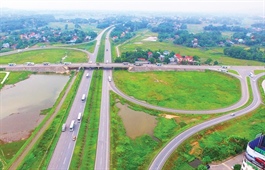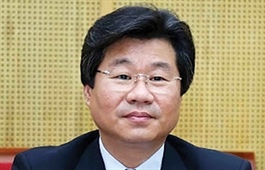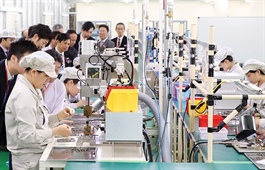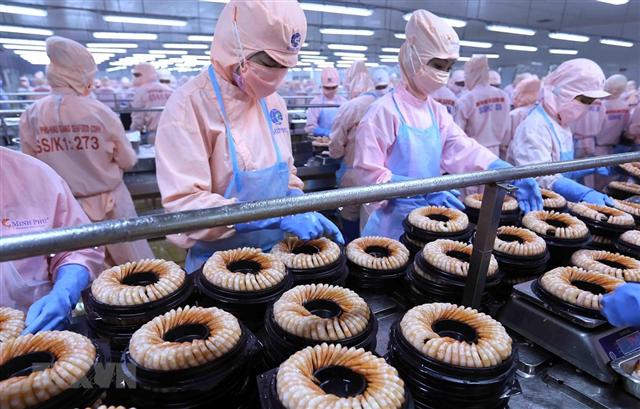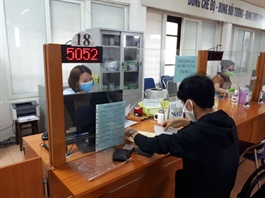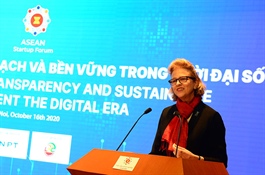Solutions tackled for disbursement of FDI
Solutions tackled for disbursement of FDI
Resetting focus on disbursing registered foreign investment capital, along with boosting the disbursement of public investment, would go a long way towards restarting socioeconomic development after the COVID-19 pandemic.
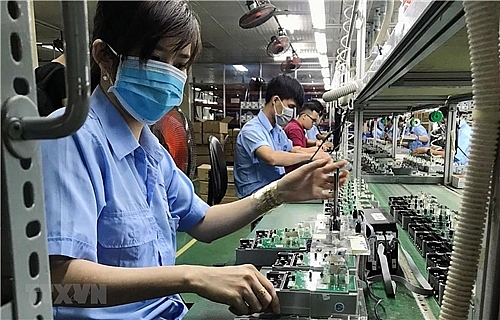
Solutions tackled for disbursement of FDI, photo: VNA
|
The Vietnamese government has been making efforts to boost disbursement of public investment, with disbursement of foreign direct investment (FDI) capital in addition hoping to contribute to generating jobs and maintaining social security.
The impact of foreign investment on socioeconomic development can be seen through the export turnover figures. According to the Foreign Investment Agency (FIA) under the Ministry of Planning and Investment (MPI), in the first three quarters of 2020, there were 1,947 newly-licensed projects registered with $10.36 billion; another 798 operational projects increasing capital worth $5.11 billion; and another 5,172 projects with capital contribution and stake acquisition valued at $5.73 billion.
The new, additional and share-purchasing investment capital decreased compared to the same period last year. Disbursed foreign capital also declined and, as a result, the export turnover excluding crude oil was $27.5 billion, down 0.7 per cent on-year.
“Disbursing registered FDI capital becomes more urgent in the context that COVID-19 remains a profoundly complex global disturbance impacting Vietnamese activities, including investment, business, and foreign trade, while exerting significant impacts on socioeconomic growth,” said Nguyen Viet Cuong, deputy head of the FIA’s Division of General Affairs and Information.
The MPI, through the FIA, has built a programme to help disburse FDI across the country and submitted it to the prime minister for approval. Accordingly, local authorities would focus on encouraging disbursement at large-scale projects, which would contribute to both their export turnover and to generating jobs. Especially, local authorities will target projects in large cities and provinces with complete infrastructure (see box).
|
In the past five years up to the first quarter of 2020, Vietnam’s total accumulated registered FDI was $147.75 billion, $76.63 billion of which has been disbursed. The accumulated undisbursed capital from 1998 to the end of 2019 was $154.2 billion. If overseas investors dispensed 10 per cent of this within the year, more than $15.42 billion would flood into the economy. Adding to the $13.76 billion disbursed in the first three quarters, the figure for the whole year would be $29.18 billion, which could be seen as ample motivation for the economy. Projects which have yet to disburse capital can mainly be found in the following cities and provinces: Ho Chi Minh City (9,458 projects), Hanoi (3,818), Binh Duong (1,685), Dong Nai (1,685), Bac Ninh (1,573), Haiphong (796), Ba Ria-Vung Tau (471), Thai Nguyen (162), Thanh Hoa (146), and Ha Tinh (77). These projects include many large-scale ones that the local authorities are looking to encourage forward in terms of disbursement. Meanwhile, many licensed billion-dollar projects yet to disburse include the $4.1 billion Saigon Atlantis Hotel, a $2 billion Nhon Trach Berjaya urban project, a $3.5 billion international school, and a $1 billion Kobelco venture. Source: Foreign Investment Agency |
“The MPI acts as the key agency collaborating with other ministries and localities to review foreign-invested projects across the country and divide them into three groups,” Cuong said. “The first group would consist of projects already in operation. Authorities would check whether the investors have disbursed the entire registered capital and if they are looking to expand their facilities. They would come up with solutions to help them disburse the remaining capital, including support for investors in dealing with administrative procedures.”
The second group would include projects under construction. “Authorities should compare the actual progress of construction to the licensed schedule. They are in charge of taking special care with delayed projects, deciding to revoke those that cannot be salvaged,” Cuong explained. “Last but not least is the group of newly-licensed projects. Authorities would create favourable conditions for investors to complete administrative procedures in order to ensure that construction can go according to schedule.”
Meanwhile, Pham Thai Son, head of Hung Yen Industrial Zones Authority, said that it is important to strictly manage projects after licensing. “Every year, local authorities have to develop a plan for regular inspection and supervision, specifically for projects that are behind schedule, and have signs of violation in terms of the environment, construction, or labour usage,” Son said. “In addition, before granting investment certificates, state management agencies need to study the feasibility of the project, as well as check the investors’ financial capacity.”




